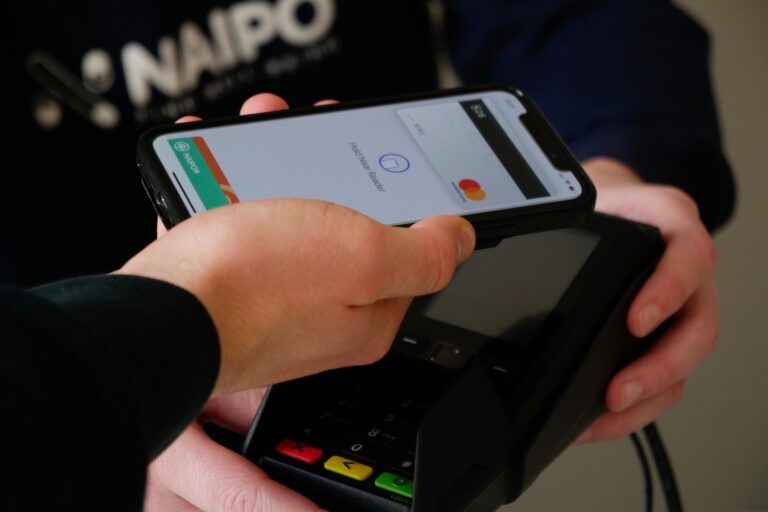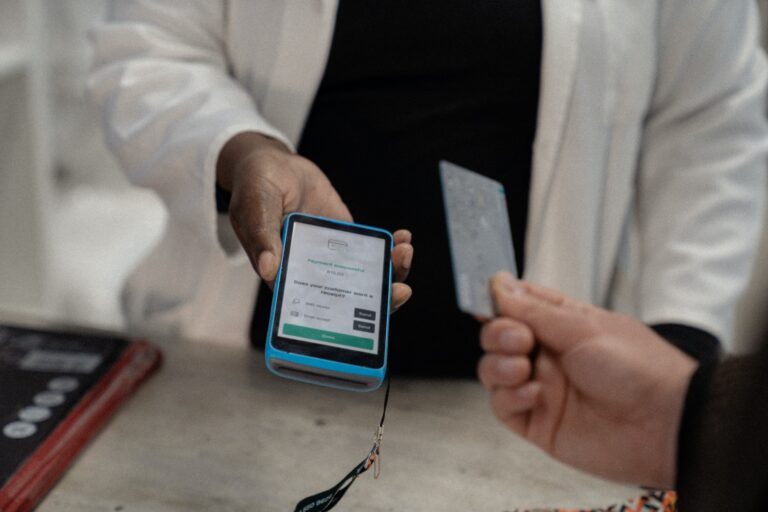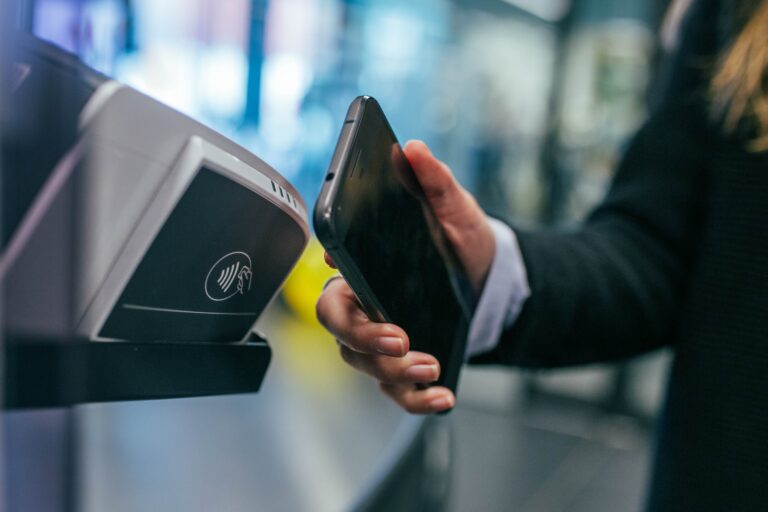Looking to understand the different terminology catering towards hotel and payments? You’ve came to the right place. Payments can be complex when partnered with hotel software (e.g. Property Management Systems or Booking Engines). In this post, we’ll define and break down some of the most common terms related to hotelier and accommodation payments.
| Term | Definition |
|---|---|
| 3DS Secure a.k.a. Two-Factor Authentication (2fa) | 3-D Secure is a two-factor authentication (2fa) process that helps ensure that the guest is using their card, rather than a fraudster. This extra layer of security can be strong proof that the transaction was genuine. When a customer makes a payment that exceeds a certain amount, Kovena provides the technology (if the customer's bank has 2fa authorised) to send the customer a push-notification to approve the transaction. |
| Acquirer | A financial institution that processes credit and debit card transactions on behalf of the card issuers. |
| Chargeback / Dispute | The process of a cardholder disputing with their bank that the payment made on their card was not valid or authorised. Typical reasons why a cardholder may repudiate a payment are: 1. The product/service was not provided by the hotel as expected 2. The card was stolen and fraudulently used at a hotel 3. The hotel incorrectly processed a payment on that card 4. The cardholder wishes to renege on a payment and states (fraudulently/falsely) that the card was used without their authorisation. The card is assumed to be stolen/compromised in this scenario by the issuer. Read more below: - What is a Chargeback? - Compelling Evidence to Dispute Chargebacks: A Guide for Hotels |
| Customer Not Present Payments (CNP) | Payments made where the cardholder or customer is “not present.” The payments are typically made over the phone via a virtual terminal. |
| Customer Present Payments (CP) | Payments made where the cardholder or customer is face to face or at point of sale. CP payments are typically validated by either a signature or a PIN. The exception being “Tap and Go” contactless type payments. With contactless payments a floor limit of $100 is applied in Australia where all payment below floor are considered validated and therefore the merchant is still protected from Chargebacks. |
| Digital Wallet | There are plenty of popular digital wallets such as Google Pay, Apple Pay, Cash App, PayPal, Venmo, etc. A digital wallet (e-wallet) can store user payment info and passwords for different types of payment methods. |
| Disbursement (or Payouts) | A hotel or accommodation can choose when they’d like to have their funds disbursed into their bank account. Some hoteliers like their funds to be disbursed (or paid out) when they reach a certain amount, or prefer to have their funds disbursed on a weekly, bi-weekly, or monthly basis. Kovena is flexible and is able to work with the hotel to create the disbursement timing that the hotel prefers best. Due to the current high risk in the travel industry, Kovena only disburses funds to merchants once the service is provided (booking is complete by the customer checking-out). This is only temporary and these restrictions will be lifted as the industry is deemed to be less risky post COVID-19. By managing risk in this way, it also negates the need for Kovena to require any securitisation for a new account and reduces the need for monthly service. |
| EFTPOS | EFTPOS stands for Electronic Funds Transfer Point of Sale through an EFTPOS device/pinpad. Verification of an EFTPOS payment is via a PIN (Person identification Number) only but chip to chip connection between the Card and the EFTPOS device/pinpad is planned. EFTPOS devices can also process credit card and Amex payments. |
| FX Fee | Conversion between one country’s currency into another country’s currency. If you view xe.com, you’ll be able to see exactly what the mid-market rates are. Example: 1 USD = 20 MXN |
| Interchange Fee | An interchange fee is a fee that is charged from a guest’s/customer’s bank and will alter depending on the type of card used. |
| Know Your Customer (KYC) | The Know Your Customer (KYC) process is a necessary and mandatory verification and security measure that enables accommodations to accept payments and receive disbursements into their accounts. Read more: The Importance of Know Your Customer (KYC) and AML/CTF |
| Merchant of Record (MoR) | A merchant of record (MoR) is the entity that is authorized, and held liable, by an Acquirer to process a consumer's credit and debit card transactions. This allows Kovena to bring on and onboard any hotel it sees fit to process payments through our solution. |
| Mid-Market Rate | The mid-market rate is the midpoint in between the buy and sell price of two currencies at a given time. Example- The mid-market rate at 1:00pm EST is USD to AUD: 1USD = 0.72AUD whereas the mid-market rate at 4:30pm EST is USD to AUD: 1USD = 0.71AUD. |
| Payment Gateway | A business that has been set up to assist in the secure collection and transmission of a customers payment details to a Payment Processor. The connection/integrations once completed allows the card payments to be processed for authorisation and settlement through the payment processor (step 2). The payment channels typically serviced by a Payment Gateway include ecommerce and card not present transactions. Kovena is both a payment gateway and payment processor. |
| Payment Processor | A business that has been created to assist an Acquirer or a hotel (with appropriate technology) in transporting a card payment from the hotel to the Acquirer and then an Issuer for authorisation and settlement of the payment. Once the payment has been accepted through the payment processor, that enables and secures that payment to be transacted. Kovena is both a payment processor and payment gateway. |
| PCI Vault | A PCI Vault is a vault that holds customers’ credit cards outside of the payment software/provider. Kovena provides this for all partners if utilising embedded payments. Read more here: The Cost of a PCI Travel Vault |
| PCI Compliance | Stands for Payment Card Industry Data Security Standard (PCI DSS). PCI DSS is a set of security standards ensuring that ALL companies that accept, process, store or transmit credit card information maintain a secure space for these cards. Prevents fraud, risk and other factors. Read more here: - The 12 Requirements of PCI DSS Compliance - Quick Guide to PCI Compliance for Property Management SystemsQuick Guide to PCI Compliance for Property Management Systems |
| Point of Sale (POS) | The Point of Sale is that technology implemented by a hotel to allow guests to process sales within a fixed or mobile store. The POS is typically made up of the following components: - Monitor (Microsoft/Android/IOS based) - POS software - Printer - Communications Router - EFTPOS Pin Pad if integrated to the POS software |
| Pre-Authorisation | A Pre-Authorisation or pre-auth can be used for security deposits or damage deposits when a guest checks-in at a hotel. A pre-auth will put the amount on hold on a customer’s credit card statement and will not charge the card unless authorized. After 7 total days, the funds will be released back to the guest. Hoteliers are able to charge ‘partial pre-authorizations’, meaning that if a guest has broken a lamp, they can be charged a partial amount (not the full amount) in order to charge that partial amount. Example- hotelier pre-authorizes $100AUD for a security deposit but guest breaks a lamp that cost $25AUD. Read more here: What are the Benefits of Pre-authorisations for Hotels? |
| Reconciled Reporting | By being fully embedded with a Property Management System, Kovena enables a full reconciliation report to be sent to the hotelier’s using the payment solutions. This includes, not only the transaction details of the payment, but also the booking details associated with the transaction. Accountants no longer need to switch back and forth between their operational system (bookings) and their payments system, in order to connect the two. All payments and booking data is combined into this single report. The report can be built into your PMS with data being fed through API’s, or Kovena can provide a URL that can be hyperlinked in the PMS’s that directs the accommodation to a Kovena hosted report. |
| Refund Payment | A refund is can be utilised for a few different reasons. Similarly to chargebacks, if a guest hasn’t been given the service they paid for, they’ve gotten sick (COVID-19), or if they had a poor experience (there are plenty of other reasons for refunds), these would all be different scenarios for refunds. Refunds are all accessible in the PMS when embedded with Kovena. Read more here: The Benefits of Refunds and Voids for Hotels |
| Retail Fee / Sell Rate | A retail fee is the total amount/fee that hotelier’s will be charged for each transaction that is processed. The retail fee includes all of the fees involved within that payment transaction. |
| Token / Tokenization | When a card is processed through Kovena, the card will be tokenized meaning that there will be no sensitive data that a hotelier can access to help prevent credit card fraud. This relays back to PCI Compliance. When a card is tokenized through a PMS, it will appear in the dashboard with only the last 4 numbers of a credit card, it will not have all of the credit card numbers accessible and viewable. |
| Virtual Credit Card (VCC) | A digital credit card with improved security that is only used on online transactions. In stores, you’re unable to scan something that is virtual, meaning you’re only able to use a VCC online. They create a temporary CC number to use online to protect your identity. Example- Booking.com can process and create VCC’s for hotelier’s to input the VCC into a virtual terminal. |
| Virtual Terminal | Web-Based application allowing customers to process payments electronically online. Think of a virtual terminal of turning your computer into an electronic terminal virtually where you input credit card details in order to process payments. |
| Void Payment | A void payment allows hoteliers to completely cancel a transaction that is processing in order to make sure it doesn’t show on the credit card statement. This is different from a refund because a refund will appear on the credit card statement and will be removed within a few business days. Whereas a Void payment, will completely erase that payment from the credit card statement. Read more here: Benefits of Refunds and Voids for Hotels |


